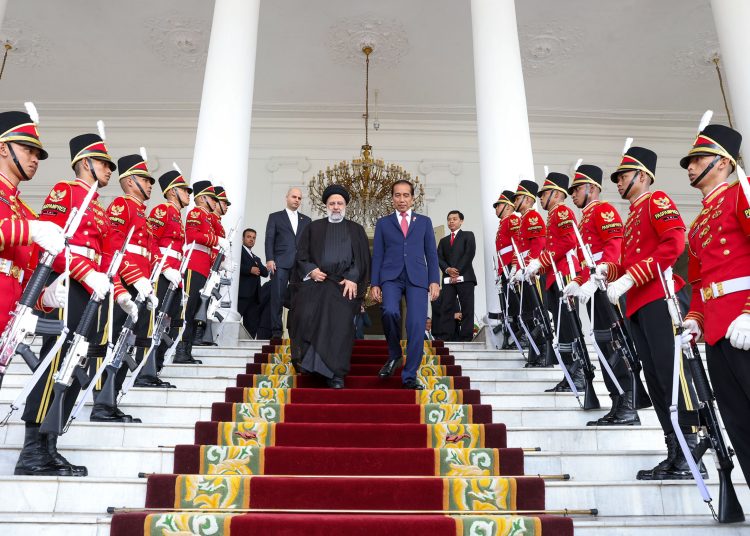In a display of diplomatic engagement, Iranian President Seyyed Ebrahim Raisi embarked on a visit to Indonesia at the behest of his Indonesian counterpart, President Joko Widodo.
The two leaders convened at the Indonesian Presidential Palace, where they presided over the signing of 11 bilateral cooperation documents, signaling a stronger partnership between their respective nations. Tuesday’s high-level talks culminated in the establishment of a preferential trade agreement, aimed at bolstering economic relations between Iran and Indonesia.
Despite the modest €600 million trade volume between the two countries last year, the Iranian President envisions a future of flourishing commerce, with an ambitious target of $20 billion in annual trade.
As the United States continues to impose sanctions on Iran, and that the 2015 nuclear deal has not been restored yet, Tehran seeks to diversify its partnerships and forge alternative avenues for economic cooperation, particularly with regional and Asian nations.
Addressing these challenges during a joint press conference with President Widodo, Raisi stated that “sanctions and threats have been unable to hinder Iran’s progress”.
Indonesia marks the 11th destination on President Raisi’s diplomatic itinerary since assuming office, with previous trips including visits to Tajikistan, Turkmenistan, Russia, Qatar, Oman, Uzbekistan, the United States (for the UN General Assembly), Kazakhstan, China, and Syria. This extensive outreach reflects Iran’s strategic efforts to build robust relations with a diverse array of countries, particularly those with promising growth potential in light of shifting international dynamics and the evolving world order.
Ayatollah Seyyed Ali Khamenei, Iran’s Supreme Leader, recently convened with the nation’s ambassadors and envoys to discuss the changing world order and Iran’s role within it.
Today In Jakarta, President Raisi emphasized the significance of fostering ties with Indonesia as “a key player in Asia and the global stage, and an active member of numerous regional and international organizations”.
Indonesia boasts the largest economy in Southeast Asia and is a prominent emerging market economy. As a middle-income nation and G20 member, it is considered a newly industrialized country, ranking 16th worldwide in terms of nominal GDP and 7th in GDP (PPP). Given Indonesia’s status as a burgeoning economic power with projections of continued growth, Tehran seeks to solidify the foundation of its collaboration with Jakarta across multiple sectors.
Furthermore, Iran and Indonesia share relatively common perspectives on certain political matters, such as the Palestinian issue and the situation in Afghanistan.
President Raisi emphasized the “mutual commitment of both countries to advocate for the rights of the Palestinian people and the liberation of Quds”. He also highlighted their “shared views on the necessity of forming an inclusive Afghan government that represents all ethnic and religious groups, working towards the realization of rights for the entire Afghan population”.






